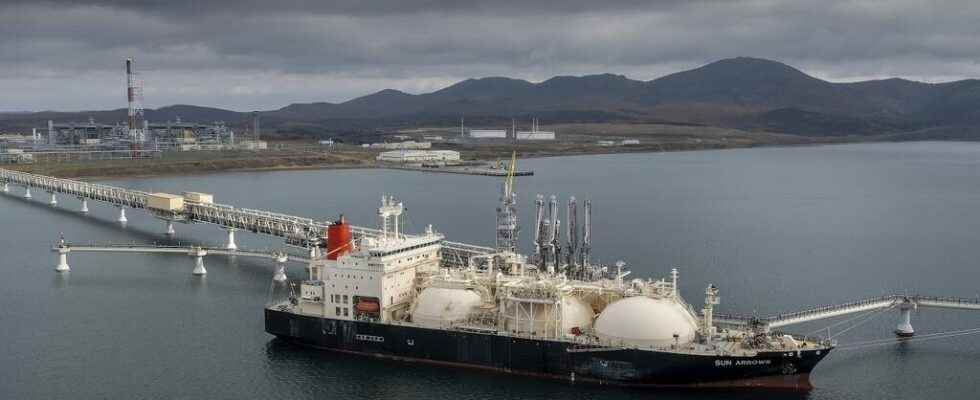Japan welcomes Russia’s decision to allow two Japanese trading houses to retain their shares in the Sakhalin-2 gas and oil project in Russia’s Far East. Tokyo has been involved in sanctions against Russia since the start of the invasion of Ukraine. But, devoid of fossil resources, it refuses to give up Russian gas and oil, which would compromise its energy security.
With our correspondent in Tokyo, Frederic Charles
The American ally understands Japan’s decision not to deprive itself of the gas produced in the Russian island of Sakhalin, in the north of the Japanese archipelago. About 60% of the 10 million tons of gas extracted from the island are destined for Japan, after being liquefied. This gas covers 9% of the needs of the land of the rising sun.
In June, Russia had unilaterally taken control of the Sakhalin-2 project, after the decision of the British group Shell to withdraw and sell its 27.5% stake. All of the shares were transferred to a new company created by the Russian state. The new operator and majority shareholder is now Gazprom, the Russian energy giant. Russia allows two Japanese trading companies, Mitsubishi Corp and Mitsui Corp, to transfer their old shares in Sakhalin-2 – 10% and 12.5% respectively – to the new Russian state entity.
Japan must be realistic. After having avoided power cuts during the summer, he fears this winter to run out of heating. The city of Tokyo plans to reduce city gas consumption. Japan has reduced its imports of Russian coal and oil. But compensating for the loss of its gas supplies would be very difficult in a tight global gas market.
Japan also suspects that if its trading houses left the Sakhalin-2 project, they would be replaced immediately by chinese companies.
